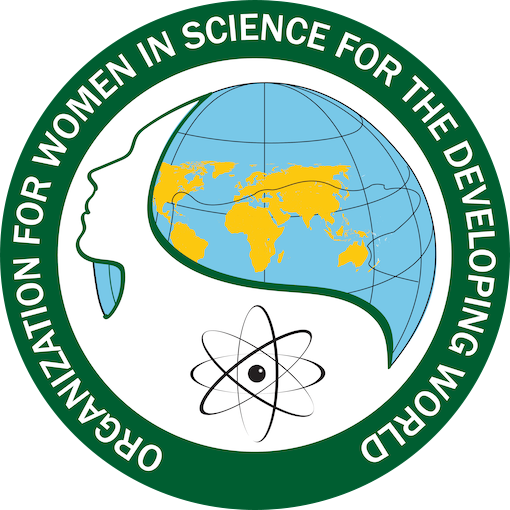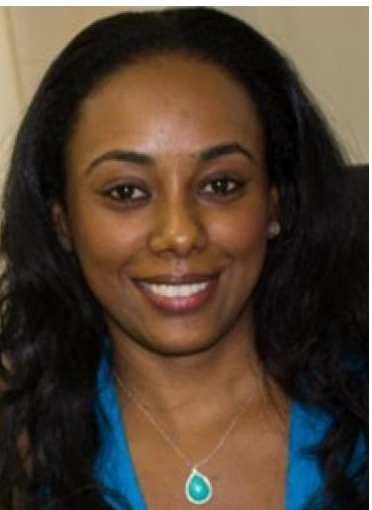
OWSD Award


About me
Dr. Simone Badal is a pioneering cancer researcher and biotech entrepreneur addressing critical health disparities through scientific innovation. As Founder of AntiCancer Research Jamaica (ACRJ) and Senior Lecturer at the University of the West Indies, she developed the Caribbean's first cancer cell lines from African-Caribbean populations—breakthrough research tools enabling personalized medicine for underrepresented communities.
Her work has secured over $1M USD in competitive funding from NIH, Pfizer, and Chan-Zuckerberg Initiative, with 58 publications including contributions to Nature Reviews Cancer. Dr. Badal's commitment to equity extends beyond research: she founded the ACRJ Foundation supporting 15+ early school leavers and leads community initiatives impacting 200+ children annually.
Recognized with the 2025 Anthony N. Sabga Caribbean Awards for Excellence in Science & Technology—the region's most prestigious honor—Dr. Badal was also Nature Research Award Runner-up (2021) and Springer Nature/BCRF Rising Scholar (2024). As OWSD PhD Fellowship Reviewer since 2020 and Wellcome Inclusive Research Design Expert Advisor, she champions opportunities for women scientists globally while building Caribbean scientific capacity.
Dr. Simone Badal is transforming cancer research and treatment equity through groundbreaking scientific innovation and strategic leadership. As Founder and Chief Scientific Officer of AntiCancer Research Jamaica (ACRJ) and Senior Lecturer in the Department of Basic Medical Sciences at the University of the West Indies, Mona, she has pioneered the development of ethnically diverse cancer research tools that directly address critical gaps in personalised medicine.
**Scientific Leadership and Innovation**
Dr. Badal's most significant contribution is the creation of six novel cancer cell lines (ACRJ-PC28, ACRJ-PC33, ACRJ-BC24, ACRJ-BC24α, ACRJ-BC24β) derived from African-Caribbean patients—the first such repository in the Caribbean region. Her 2022 breakthrough publication in Cancer Research Communications established ACRJ-PC28 as the Caribbean's first prostate cancer cell line, while her 2025 follow-up study in the same journal revealed that this Afro-Caribbean cell line responds differently to standard anticancer drugs compared to existing lines from predominantly European populations. This discovery provides crucial evidence for developing ancestry-specific targeted therapies for underserved populations and directly impacts treatment decisions for millions of Black patients globally who experience significantly poorer cancer outcomes.
Her research portfolio includes 58 publications with over 1,100 citations, h-index of 18, and contributions to high-impact journals including Nature Reviews Cancer. She has authored two widely-adopted Elsevier pharmacognosy textbooks prescribed across Caribbean universities and published the memoir "No Cell Left Behind" (2023), chronicling her journey in developing ethnically diverse cancer research tools. She has secured over $1M USD in competitive research funding, including prestigious awards from NIH Fogarty International Center ($520,000), Pfizer ($88,000), and Chan-Zuckerberg Initiative ($26,220).
**International Recognition and Impact**
In 2025, Dr. Badal received the Anthony N. Sabga Caribbean Awards for Excellence in Science and Technology—the Caribbean region's most prestigious award with a prize value of US$80,000—recognizing her pioneering contributions to cancer research and regional scientific advancement. Additional honors include Nature Research Award Runner-up for Inspiring Women in Science (2021), where she competed globally with scientists from institutions like Harvard, and selection as a Springer Nature/BCRF Rising Scholar (2024), one of only 25 scientists chosen worldwide.
**OWSD Engagement and Global Advocacy**
As an OWSD PhD Fellowship Selection Committee Reviewer since 2020, Dr. Badal has evaluated 100+ applications from female scientists across developing countries, directly shaping opportunities for the next generation. She serves on Wellcome's 15-member Inclusive Research Design and Practice Expert Advisory Group, co-developing principles that guide global research funding policies. Through the African Caribbean Cancer Consortium (AC3), she leads multi-country research projects spanning Africa, the Caribbean, and North America.
**Capacity Building and Community Impact**
Dr. Badal's commitment to equity extends beyond the laboratory. She founded the ACRJ Foundation, raising over 3 million JMD to support 15+ early high school leavers with CSEC examination costs. Her community outreach initiatives provide annual Back-to-School fairs and support for 200+ children and 100+ elderly individuals in rural Manchester, Jamaica. As a mentor, she has supervised 15+ graduate students, with alumni now at Oxford University and Fox Chase Cancer Center.
Through her integrated approach—combining cutting-edge science, strategic partnerships, mentorship, and community engagement—Dr. Badal exemplifies the transformative impact of women scientists in addressing global health challenges while building sustainable scientific capacity in developing regions.
Degrees:
BOOKS
1. **Badal S** (Ed.) and Clement Y (Ed.). *An Introduction to Pharmacognosy: Fundamentals, Applications and Future Strategies, Second Edition.* Elsevier, 2023. ISBN-13: 978-0443186578. (Citations: 68)
2. **Badal S**. *No Cell Left Behind.* Memoir. Bambu Sparks Inc., 2023. 200 pages.
3. **Badal S** (Ed.) and Delgoda R (Ed.). *An Introduction to Pharmacognosy: Fundamentals, Applications and Future Strategies, First Edition.* Elsevier, 2016. ISBN-13: 978-0128021040. (Citations: 73)
PEER-REVIEWED JOURNAL ARTICLES (Selected High-Impact)
**2025**
1. **Badal S**, Hwang BJ, Nelson A, Frank K, Maitre T, Nwokocha M, Thompson R, Morison B, Haraksingh R, Odero-Marah V, Ragin C. Novel Afro-Caribbean Prostate Cancer Model Reveals Ancestry-Specific Drug Vulnerabilities with Therapeutic Implications for Black Patients. *Cancer Research Communications*, 2025, 5(10):1758-1770. doi: 10.1158/2767-9764.CRC-25-0254.
**2023**
2. Chen N, McGrath CB, Ericsson CI, et al. (including **Badal S**). Marital status, living arrangement, and survival among individuals with advanced prostate cancer in the International Registry for Men with Advanced Prostate Cancer. *Cancer Epidemiology, Biomarkers & Prevention*, 2023. (IF: 4.344)
**2022**
3. Valentine H, Aiken W, Morrison B, Zhao Z, Fowle H, Wasserman JS, Thompson E, Chin W, Young M, Clarke S, Gibbs D, Harrison S, McLaughlin W, Kwok T, Jin F, Campbell KS, Horvath A, Thompson R, Lee NH, Zhou Y, Grana X, Ragin C, **Badal S**. Expanding the prostate cancer cell line repertoire with ACRJ-PC28, an AR-negative Neuroendocrine Cell Line Derived From an African-Caribbean Patient. *Cancer Research Communications*, 2022, 2:1355-1372. (IF: 2.4)
4. **Badal S**. Ethnically diverse cancer cell lines for drug testing. *Nature Reviews Cancer*, 2022, 22:65-66. (IF: 69.8, Citations: 2)
5. Clarke S, Chin S, Dodds L, George SHL, **Badal S**. Racial Disparities in Breast Cancer Treatment: From Preclinical to clinical. *Breast Cancer Research*, 2022, 24. (IF: 8.4, Citations: 4)
6. Mucci L, Vinson J, Gold T, et al. (including **Badal S**). IRONMAN: A novel international registry of men with advanced prostate cancer. *JCO Global Oncology*, 2022, 8. doi: 10.1200/GO.22.00154. (IF: 4.33)
**2021**
7. **Badal S**. The importance of ancestry and diversity in cell line collection and analysis for people of African ancestry. *Cancer Control*, 2021, 40. (IF: 2.39)
**2020**
8. **Badal S**, Aiken W, Morrison B, Valentine H, Bryan S, Gachi A, Ragin C. Disparities in prostate cancer incidence and mortality rates: solvable or not? *The Prostate*, 2020, 80:3-16. (IF: 4.104, Citations: 34)
9. Zhao Z, Fowle H, Valentine H, Liu Z, Tan Y, Pei J, **Badal S**, Testa J, Grana X. Immortalization of human primary prostate epithelial cells via CRISPR inactivation of the CDKN2A locus and expression of telomerase. *Nature Prostate Cancer and Prostatic Diseases*, 2020. (IF: 5.554, Citations: 5)
**2019**
10. **Badal S**, Campbell KS, Valentine H, Ragin C. The need for cell lines from diverse ethnic backgrounds for prostate cancer research. *Nature Reviews Urology*, 2019, 16:691–692. (IF: 16.43, Citations: 9)
**2018**
11. **Badal S**, Turfus S, Rajnarayanan R, Wilson-Clarke C, Sandiford SL. Analysis of natural product regulation of opioid receptors in the treatment of human disease. *Pharmacology & Therapeutics*, 2018, 184:51-80. (IF: 12.31, Citations: 16)
**2017**
12. **Badal S**, Valenzuela AMM, Zylstrac D, Huang G, Vendantam P, Francis S, Quitugua A, Amis LH, Davis W, Tzeng TJ, Jacobs H, Gangemi GJ, Raner G, Rowland L, Wooten J, Campbell P, Brantley E, Delgoda R. Glaucarubulone glucoside from Castela macrophylla suppresses MCF-7 breast cancer cell growth and attenuates benzo[a]pyrene-mediated CYP1A gene induction. *Journal of Applied Toxicology*, 2017. doi: 10.1002/jat.3436. (IF: 3.446, Citations: 6)
13. **Badal S**, Smith K, Rajnarayanan R. Analysis of natural product regulation of cannabinoid receptors in the treatment of human disease. *Pharmacology & Therapeutics*, 2017, 180:24-48. (IF: 12.31, Citations: 23)
**2016**
14. **Badal S**, Aiken W, Ward S. Molecular targets and angiogenesis in Renal cell carcinoma: A multi-target approach. *Current Drug Targets*, 2016. Epub ahead of print. (IF: 3.522, Citations: 9)
**2014**
15. **Badal S**, Collins-Fairclough A, Stewart C, Smith K. Potential for naturally derived therapeutics: The Caribbean as a Model. Insights from the Conference on Therapeutics & Functional Genomics. *Expert Opinion on Biological Therapy*, 2014, 14:1-4. (IF: 3.974, Citations: 1)
16. Lowe HIC, Watson CT, **Badal S** (Corresponding author), Toyang NJ, Bryant J. Unearthing the medicinal properties of Tillandsia recurvata (ball moss): A mini review. *European Journal of Medicinal Plants*, 2014, 4:1138-49. (Citations: 9)
17. Lowe HIC, Watson CT, **Badal S** (Corresponding author), Toyang NJ, Bryant J. Promising efficacy of the Cola acuminata plant: A mini review. *Advances in Biological Chemistry*, 2014, 2:240-45. (Citations: 25)
18. **Badal S**, Delgoda R. Role of the modulation of CYP1A1 expression and activity in chemoprevention, a mini review. *Journal of Applied Toxicology*, 2014, 34:743-53. (IF: 3.446, Citations: 61)
**2013**
19. **Badal S**, Delgoda R. CYP1B1: friend or foe? A critical review. *OA Biochemistry*, 2013, 1:8. (IF: 0.8, Citations: 9)
20. Penicooke N, Walford K, **Badal S**, Delgoda R, Williams LAD, Joseph-Nathan P, Gordillo-Ramon B, Gallimore W. Antiproliferative activity and absolute configuration of zonaquinone acetate from the Jamaican alga Stypopodium zonale. *Phytochemistry*, 2013, 87:96-101. (IF: 7.741, Citations: 24)
**2012**
21. Lowe HIC, Watson CT, **Badal S** (Corresponding author), Toyang NJ, Bryant J. Cytotoxic effect of Jamaican bissy nut extracts on various cancer cell lines. *Applied Cell Biology*, 2012, 1(1):47-49. (Citations: 1)
22. Lowe HIC, Watson CT, **Badal S** (Corresponding author), Toyang NJ, Bryant J. In vitro anticancer activity of the crude extract and two dicinnamate isolates from the Jamaican Ball Moss (Tillandsia recurvata L.). *American Journal of Contemporary Research*, 2012, 3(1):92-96. (IF: 2.261, Citations: 16)
23. Lowe HIC, Watson CT, **Badal S** (Corresponding author), Toyang NJ, Bryant J. Cycloartane-3,24,25-triol inhibits MRCKα kinase and demonstrates promising anti prostate cancer activity in vitro. *Cancer Cell International*, 2012, 12(46):1-4. (IF: 6.436, Citations: 26)
24. Lowe HIC, Watson CT, **Badal S** (Corresponding author), Toyang NJ, Bryant J. Kinase inhibition of the Jamaican ball moss, Tillandsia recurvata, L. *Anticancer Research*, 2012, 32:4419-4422. (IF: 2.48, Citations: 12)
25. Lowe HIC, Watson CT, **Badal S** (Corresponding author), Toyang NJ, Bryant J. Cycloartanes from the Jamaican ball moss, Tillandsia recurvata L. *Analytical Chemistry, an Indian Journal*, 2012, 12:190-193. (IF: 3.239, Citations: 26)
26. Lowe HIC, Watson CT, **Badal S** (Corresponding author), Toyang NJ, Bryant J. Anti-angiogenic properties of the Jamaican ball moss (Tillandsia recurvata L.). *ISCA Journal of Biological Sciences*, 2012, 1:73-76. (IF: 0.676, Citations: 17)
27. Lowe HIC, Watson CT, **Badal S** (Corresponding author), Toyang NJ, Bryant J. Isolation, purification, and partial characterization of a glycoside from the Jamaican ball moss (Tillandsia recurvata L.). *Advances in Biological Chemistry*, 2012, 2:274-282. (IF: 0.676, Citations: 3)
28. **Badal S**, Gallimore W, Huang DG, Tzeng TJ, Gangemi D, Delgoda R. Cytotoxic and potent CYP1 inhibitors from the marine algae, Cymopolia barbata. *Organic and Medicinal Chemistry Letters*, 2012, 2:21-25. (IF: 0.5, Citations: 27)
**2011**
29. **Badal S**, Williams S, Huang G, Francis S, Vendantam P, Dunbar O, Jacobs H, Tzeng TJ, Gangemi J, Delgoda R. Cytochrome P450 1 enzyme inhibition and anticancer potential of chromene amides from Amyris Plumieri. *Fitoterapia*, 2011, 82:230-236. (IF: 3.205, Citations: 45)
**2008**
30. Shields M, Niazi U, **Badal S**, Yee T, Sutcliffe MJ, Delgoda R. Inhibition of CYP1A1 by Quassinoids found in Picrasma excelsa. *Planta Medica*, 2008, 74:1-5. (IF: 2.74, Citations: 30)
**2006**
31. Brown PD, **Badal S**, Morrison S, Ragoobirsingh D. Acute impairment of insulin signalling by dexamethasone in primary cultured rat skeletal myocytes. *Molecular and Cellular Biochemistry*, 2006, 297:171-177. (IF: 3.842, Citations: 28)
32. **Badal S**, Brown PD, Ragoobirsingh D. Nitric Oxide impaired insulin-mediated signal transduction in rat skeletal muscle. *BMC Biochemistry*, 2006, 7:7-17. (IF: 4.5, Citations: 14)
33. **Badal S**, Brown PD, Ragoobirsingh D. Exogenous nitric oxide inhibits IRS-1 expression in rat hepatocytes and myocytes. *Journal of Biomedical Science*, 2006, 13:561-568. (IF: 12.77, Citations: 7)
BOOK CHAPTERS
1. **Badal S**, Miller GJ, Sattley WM. "Plant metabolites treating diseases" in *An Introduction to Pharmacognosy: Fundamentals, Applications and Future Strategies, 2nd Edition*, Badal S (Ed.) and Clement Y (Ed.), 2023.
2. Daley DK, **Badal S**. "Plant crude drugs" in *An Introduction to Pharmacognosy: Fundamentals, Applications and Future Strategies, 2nd Edition*, Badal S (Ed.) and Clement Y (Ed.), 2023.
3. Clarke S, Jackson MA, **Badal S**. "Animal metabolites: from amphibians, reptiles, aves/birds, and invertebrates" in *An Introduction to Pharmacognosy: Fundamentals, Applications and Future Strategies, 2nd Edition*, Badal S (Ed.) and Clement Y (Ed.), 2023.
4. **Badal S**. "Introduction to plant secondary metabolites" in *An Introduction to Pharmacognosy: Fundamentals, Applications and Future Strategies, 2nd Edition*, Badal S (Ed.) and Clement Y (Ed.), 2023.
5. **Badal S**, Facey P. "Fungal metabolites" in *An Introduction to Pharmacognosy: Fundamentals, Applications and Future Strategies, 2nd Edition*, Badal S (Ed.) and Clement Y (Ed.), 2023.
6. **Badal S**. "Ethics of pharmacognosy research" in *An Introduction to Pharmacognosy: Fundamentals, Applications and Future Strategies, 2nd Edition*, Badal S (Ed.) and Clement Y (Ed.), 2023.
7. **Badal S**, Clement Y. "Pharmacognosy background" in *An Introduction to Pharmacognosy: Fundamentals, Applications and Future Strategies, 2nd Edition*, Badal S (Ed.) and Clement Y (Ed.), 2023.
8. **Badal S**, Shields M, Delgoda R. "Cytochrome P450 enzyme inhibitors from nature" in *Enzyme Inhibition and Bioapplications*, Sharma RR (Ed.), InTech, 2012. ISBN: 978-953-51-0585-5.
MANUSCRIPTS SUBMITTED/IN REVIEW
1. Shaw R, Cornwall D, **Badal S**, Powell L, Johnson A, Thompson R, Roberts P. "Breast Cancer Receptor Status in a Jamaican Cohort Shows a SBR stage 2 is most likely to present as HR+/HER2-." Submitted to *Journal of Racial and Ethnic Disparities*. (IF: 3.9)
2. Clarke S, Allen I, Ravix J, et al., **Badal S**. "Diversifying the Breast Cancer Cell Line Repository with ACRJ-BC24, ACRJ-BC24α and ACRJ-BC24β - Novel TNBC Cell Lines derived from an Afro-Caribbean Patient." To be submitted to *Nature Cancer*. (IF: 23.177)
PUBLISHED ABSTRACTS
1. Allen I, Clarke S, Ravix J, et al., **Badal S**. Diversifying the Breast Cancer Cell Line Repository with ACRJ-BC24, ACRJ-BC24α, and ACRJ-BC24β - Novel TNBC Cell Lines derived from an Afro-Caribbean Patient. *Cancer Research*, 2024. (IF: 12.07)
2. Valentine H, Aiken W, Morrison B, et al., **Badal S**. Abstract PO-138: The first Caribbean cell line, a prostate cancer cell line: ACRJ-PC28. *Cancer Epidemiology, Biomarkers, and Prevention*, 2022, 31:1355-1372. (IF: 4.344)
